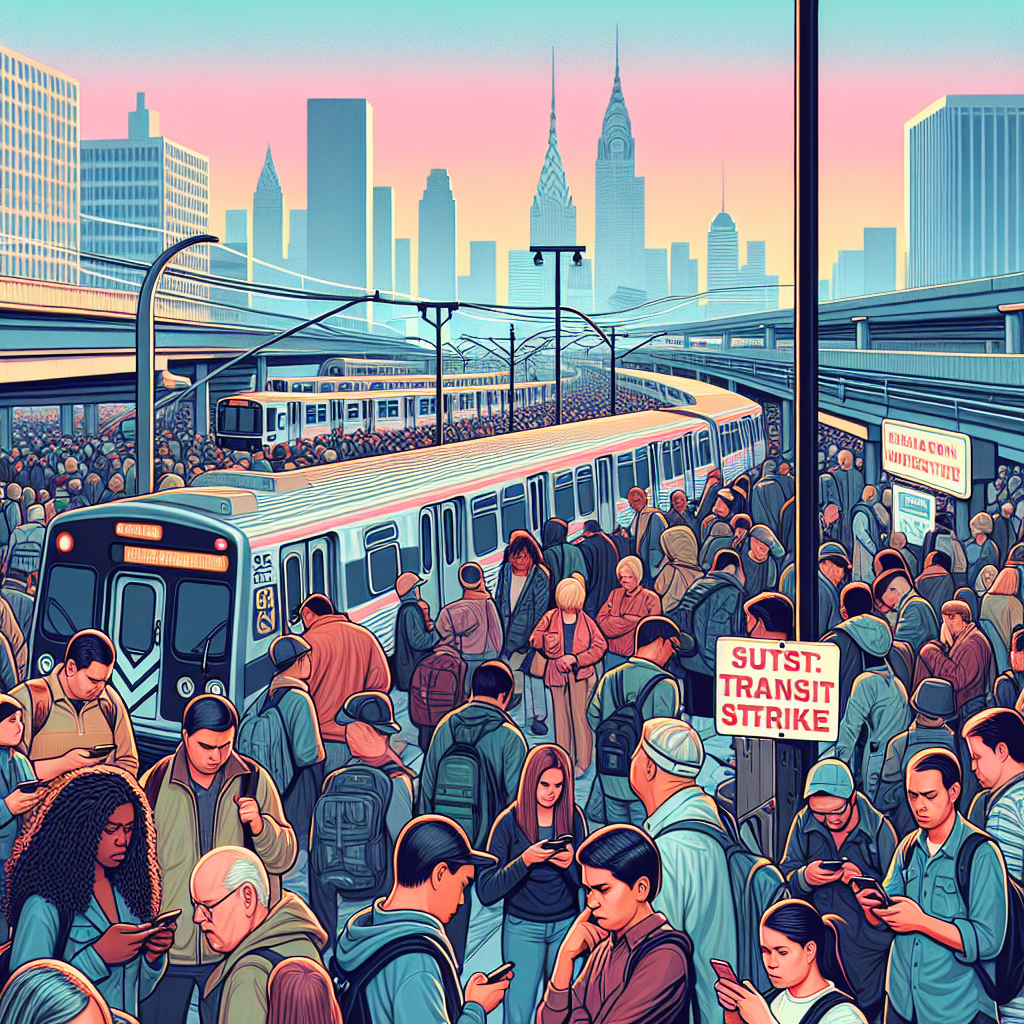NJ Transit Engineers' Historic Strike: Impact and What Comes Next
NJ Transit Strike Throws New Jersey into Travel Chaos
New Jersey woke up to a transportation nightmare as NJ Transit train engineers commenced a historic strike — the first in over 40 years — that has effectively paralyzed daily commutes for 350,000 residents and visitors. This unprecedented industrial action underscores deep-seated grievances over pay, working conditions, and scheduling, and has left officials scrambling for solutions. While commuters endure travel disruptions, the strike sheds light on broader debates around labor negotiations and public sector efficiency.
Why Did This NJ Transit Strike Happen?
1. Breakdown in Labor Negotiations
Tensions between the transit union and NJ Transit management have been simmering for months. Union members overwhelmingly rejected a proposed labor agreement last month, citing dissatisfaction with stagnant wages, insufficient benefits, and demanding schedules that often stretch workdays beyond reasonable hours.
Many engineers have described their working conditions as increasingly unsustainable, especially as commuter demand rebounded post-pandemic. They claim management failed to address these issues adequately during negotiations, leading to an inevitable strike.
Related article: Understanding the Role of Unions in America’s Labor Landscape
2. What This Means for New Jersey’s Transportation
Commuter Chaos
The strike has thrown daily commutes into disarray. New Jersey Transit is the vital artery connecting NJ residents to New York City and other regional employment hubs. With train services at a complete standstill, alternative modes of transportation, such as buses and rideshares, are struggling to keep up with the massive demand. Lengthy delays, overcrowded buses, and skyrocketing costs are now the norm for frustrated commuters.
Economic Ripple Effects
The economic impact of this strike could be staggering. Local businesses that rely on commuter traffic face losses, and industries dependent on punctual labor are experiencing reduced productivity. Analysts predict that the strike, if prolonged, could result in millions of dollars in economic disruption. For reference, according to a report by Reuters, previous transit stoppages in similar urban areas have caused daily losses running into the tens of millions.
Related article: Economic Costs of Mass Transit Disruptions: What You Need to Know
What Are Key Stakeholders Saying?
Union Members Speak Out
Union representatives argue that striking is the last resort. "We've been patient,” stated one union leader. "NJ Transit has ignored our legitimate demands for too long. Our workers deserve better wages, safe work environments, and equitable schedules." Discussions have also triggered awareness campaigns online, with workers sharing personal stories via social media platforms, hoping to gain public sympathy.
NJ Transit’s Tightrope Walk
NJ Transit management, on the other hand, has pointed to budget constraints and federal funding uncertainties. "We’re doing everything we can to resolve this dispute while ensuring taxpayers’ dollars are spent responsibly," said an official spokesperson. Frequent budget challenges at NJ Transit leave leadership walking a fine line between fulfilling employee demands and ensuring operational affordability.
Will the Strike Resolve Quickly?
The question on everyone’s mind is: When will normalcy return? Negotiations have reportedly resumed behind closed doors, but both sides remain firm in their positions. Key watchdog groups believe a resolution could take weeks unless external parties, such as state-level leaders, step in to broker compromises.
Past strikes within other transportation systems suggest that lasting disputes require external intervention. Industry experts highlight that once labor confidence erodes, repairing trust becomes increasingly difficult, prolonging conflicts.
What Can Commuters Do Right Now?
Amid this crisis, commuters are seeking alternatives. Here are some tips to navigate this difficult period:
- Carpooling Apps: Platforms like Waze and Carma Rideshare can help minimize solo vehicle travel.
- NJ Transit Buses: While crowded, buses remain a key backup option for short- to medium-distance travel.
- Cycling or Walking: For those within 5-10 miles of work, cycling or power walking has become an environmentally friendly alternative.
To keep up with NJ Transit strike updates, visit their official website or frequently refresh local news outlets.
Conclusion: What's Next for NJ Transit and Its Riders?
The NJ Transit strike exposes complex tensions underpinning public services in the U.S. While workers demand fair treatment and sustainable pay, transit users remain collateral damage. Solving this issue requires genuine engagement from leadership, long-term strategic funding, and societal acknowledgment of the essential role of transit workers. Greater public investment in transportation infrastructure might also mitigate similar disruptions moving forward.
For now, the best commuters can do is stay informed, plan ahead, and remain hopeful that negotiations culminate in positive outcomes for all stakeholders involved.
Related article: Is America’s Transit System Heading Toward a Labor Crisis?
Frequently Asked Questions (FAQs)
1. Why are NJ Transit engineers striking?
The strike stems from unresolved disputes over pay increases, scheduling issues, and poor working conditions, which have frustrated union members for several years.
2. How can I manage my commute during this strike?
Consider carpooling, ridesharing apps, or alternative NJ Transit bus services. Many commuters are also leveraging teleworking options if that’s available to them.
3. How long will the strike last?
It’s unclear. Negotiations are ongoing, but temporary disruptions could extend for weeks based on the history of similar transit strikes.
4. What is the economic impact of the strike?
While exact figures are unavailable, economists estimate that millions could be lost daily in terms of business revenue, reduced employee productivity, and increased transportation costs.
5. How can I stay updated about the strike?
Follow NJ Transit’s official announcements and local news outlets for live updates. Social media platforms are also bustling with real-time commuter reports.
Tags
#NJTransit #CommutingStrike #TransportationCrisis #LaborStrike #TransitNews #NewJerseyUpdates
